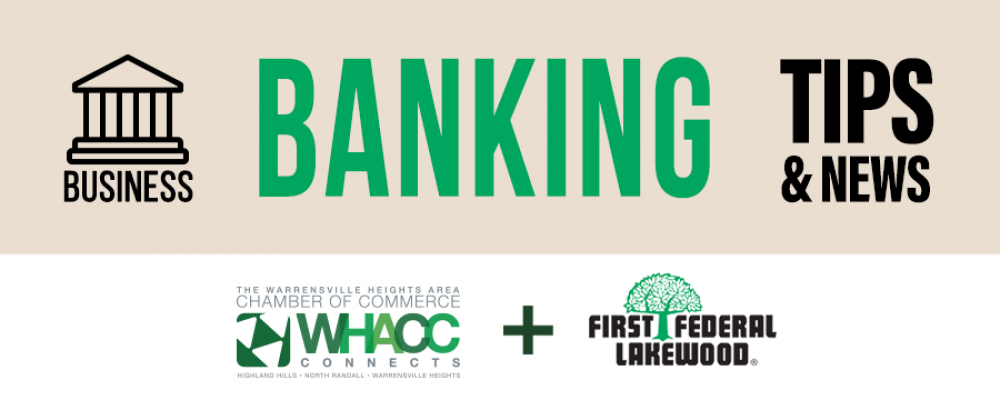
Chalana Williams, First Federal of Lakewood
Every accountant will tell you the same thing: always keep your business and personal expenses separate whether you’re a small business owner or a one-person operation. There are consequences to mingling money. The tax people do not like it and neither does your accountant.
Keep them happy and your business prospering. Here are five ways to ensure that your business money stays separate from personal money.
- Keep two bank accounts: a business account and a personal account.
This is the basic way to ensure money from your life does not mingle with business operations.
- Have two sets of financial record keeping, one for business and one for personal.
Most small businesses use a system like Quicken, Microsoft Money, or QuickBooks for their accounting. So do many households. Be sure that you keep the record keeping entirely separate.
This is essential for tax reporting purposes and also improves your financial organization. If you do not know where the money is going in your business, you cannot tell if you are making a profit. With a complete record from your financial reporting system, everything is in one place, listed by date and category. It makes filling out tax forms easy.
- Get a business credit card.
Small companies and one-person operations often have trouble qualifying for a business credit card, but keep trying. It helps with record keeping, gives you proof of expenses when the IRS comes calling, and also builds your business credit history. Plus, you can deduct interest charges on a business credit card.
- Incorporate.
With your business as a separate legal entity, your personal and business expenses won’t mingle. Two popular small business incorporation structures are the LLC and the S corporation. Consult with a lawyer, accountant, and financial planner to help choose the best form for your business needs.
- Pay yourself a salary.
This is easy if you have incorporated, but is advisable even if you are a sole proprietorship. Pay yourself a wage. Don’t go over that amount with your personal expenses, which encourages you to dip into business funds to pay bills.
When tax season rolls around, each of these five practices will make filling out forms much easier. Your company’s finances will be well-organized and you’ll have a clearer view of the health of your business.


Follow Us!